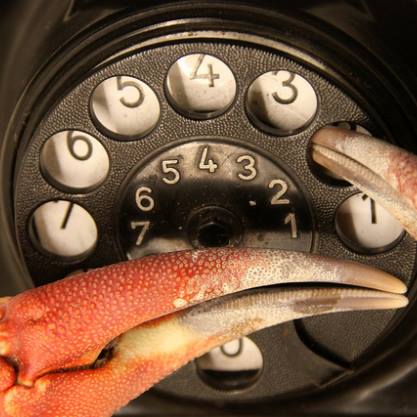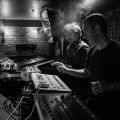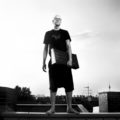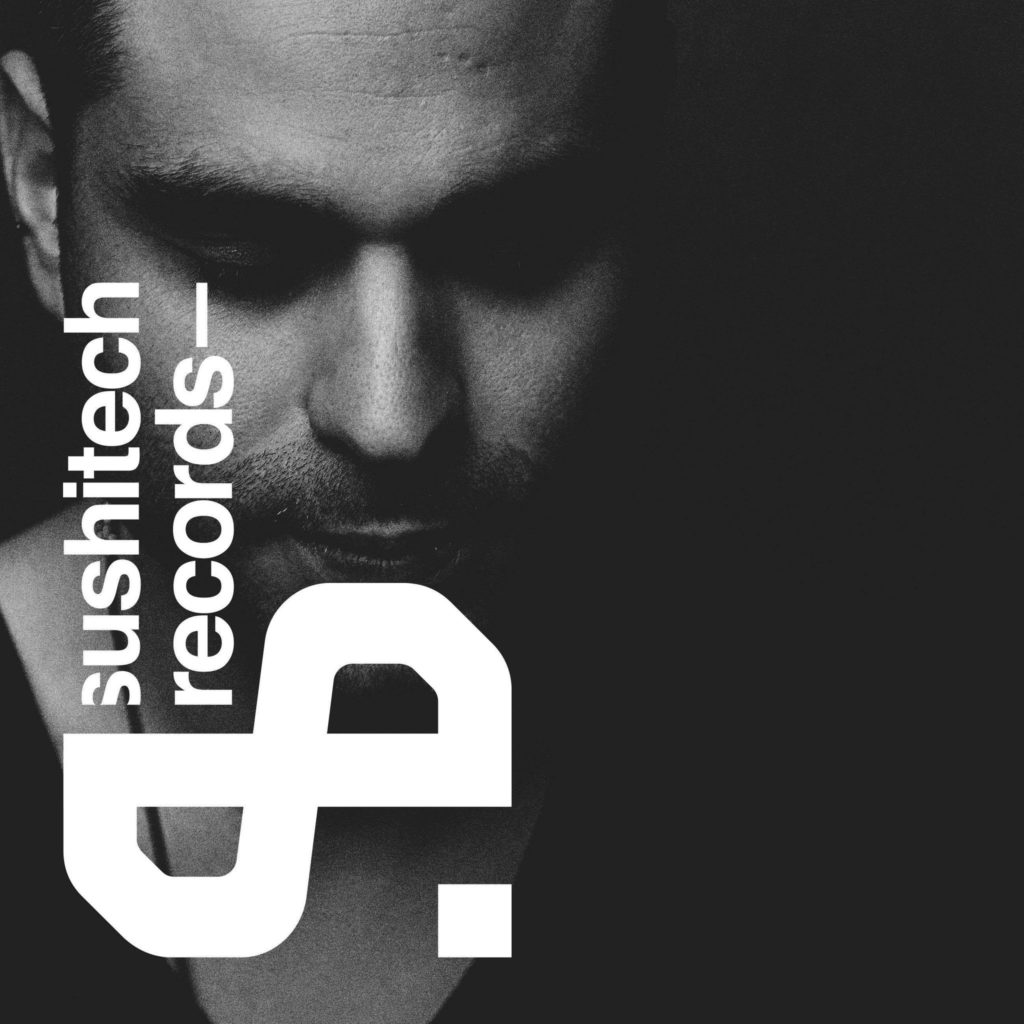
Dj, producer and label boss Yossi Amoyal celebrates 15 years of Sushitech records
For those who take a keen interest in House or Techno, there’s a strong chance you’ll have come across a record or two under the Sushitech records banner, whilst digging through the racks of your local vinyl vendor. A sterling edged imprint that first opened shop back in 2005, it’s since amassed quite an enviable discography that continually chimes with purists and dancefloor fanatics alike. A label that has always favoured quality over quantity, it straddles a mix of classic and upfront sounds from respected artists that span across the eras.
The brainchild and long-term vision of Yossi Amoyal, he spreads his time and talents as a producer, mixing engineer and dj as well as doing all the unglamorous work to keep the imprint running from the place he now calls home in Berlin. Hailing from Tel Aviv, Yossi was fortunate enough to have been steeped in music from quite an early age, thanks to a supportive family, love of radio and exposure to a raft of emerging sounds via Club Haoman 17 in the late 90s. It was a career in radio that set him on course to work much closer in music, before he took the plunge and moved to London in the 00s to find his feet.
Not having looked back since, the label is about to mark 15 years of being in business with the impending 4 part release 12″ series called “Fluere”. When he agreed to take the time and have a chat about his background and experiences, it goes without saying we were really pleased to be able to dig a little deeper into his story…
You grew up in quite a musical family: how did this shape your outlook growing up?
“Music has always been a driving force in my life, down to my dad through my brother, it evolved organically. My big brother is a pianist and composer, growing up with such a classic instrument in our living room, listening to it on a daily basis gave me the distinctive perspective on how real instruments should actually sound. I think that it’s pretty essential to know how real instrument vibrates and resonates in a room, to know where to place it in a composition and how to mix it with other elements.
At the age of 7, I started to play drums and study music, I always had the support and encouragement of my family to do it in the best way. That gave me enough confidence to take the musical decisions that I’ve made through the years.
From a young age, my best mates were musicians and sound enthusiasts, I guess we always feel more comfortable in an environment where people share the same interests, we always speak and share thoughts about music. All that became second nature to me, so there is absolutely no effort when I need to take decisions or produce music.”
What was your first experience of discovering electronic shaped sounds?
“Electronic music was always in the background, I’m relatively young and coming from a very innovative and liberal place so it was always there. We also had some really good radio shows that helped me and many others discover electronic music on a deeper level. Radio was a big deal back then and to be frank I quite miss it, a good radio show is an amazing source of inspiration, I’m pretty sure that most artists above the age of 30 would agree with that.You could listen to electronic stuff everywhere in Tel Aviv and I always liked synth-based music, so all the house / techno thing grew on me quickly.”
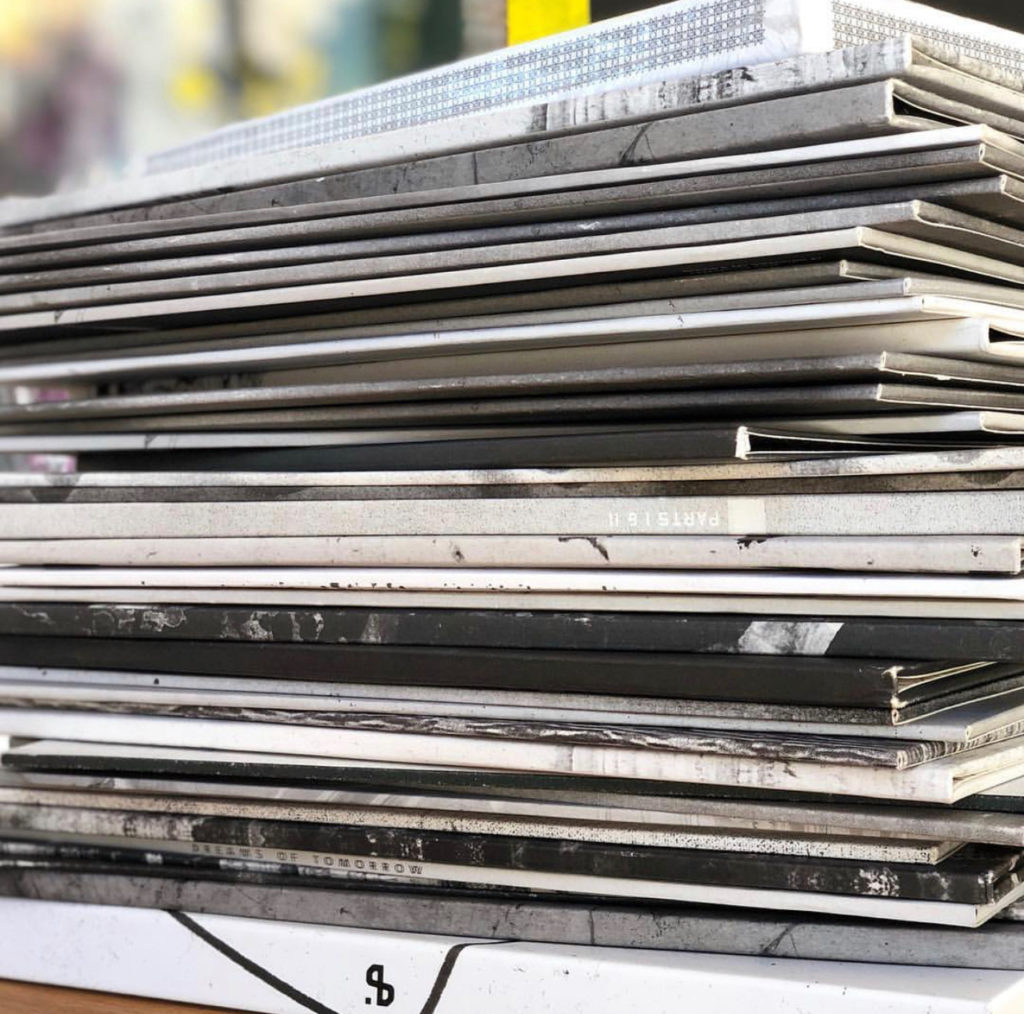
As you grew older, what was it about records that interested you?
“My father had an impressive collection of funk / soul records and we had a fine turntable and HiFi at home. We often used to listen records and it was something that felt very natural to me, the sound of vinyl is something I love. At home, we had a record collection just like we had big book shelves and I always saw it the same way, it’s a piece of art that the artist or author decided to share with you. I like the digital world very much, it’s fast and very convenient to work with but I feel collecting files is extremely boring.”
Tell us a bit about the electronic music scene in Israel back then… when did you discover Techno/House and how did it change your outlook?
“Throwing it back to my home town in the late 90’s, we had that legendary club called Haoman 17. They used to have incredible residents and guest djs on weekly basis, Deep Dish, Richie Hawtin, John Acquaviva, Josh Wink, all the west coast house veterans… the list is endless.
On holidays they had parties aimed to the younger crowd and me and my mates used to visit the club from the age of 13. They played very underground music to start with and then some more commercial stuff. I was impatiently after the music they played at the beginning of the night, I went to music stores and sought that type of sound, that and the radio shows we had back then were my first introduction to quality house and techno music, and I was really into it!”
At what point did you decide you wanted to explore things further?
“Shortly after discovering the scene and visiting clubs I decided that I want to take things further, I was only 14 but already knew that I want to be connected. I used to have 2 drum sets at home, a jazz one that I got from my uncle and another one made by Ludwig. I asked my father to swap one of them for a set of turntables and I taught myself how to play. I also downloaded my first DAW which was Impulse Tracker and started to play with that too.
Later when I was 16, I started to visit clubs on regular basis and witnessed some of the best sets I ever heard. It was very pure and honest. At the same time I started to work on the radio as main editor for the weekly house show, the show that I actually grew up on, and began playing various places in town on a weekly basis. All those adventures gave me the first impression about how a proper club night should look like, how to build up sets and so much more.”
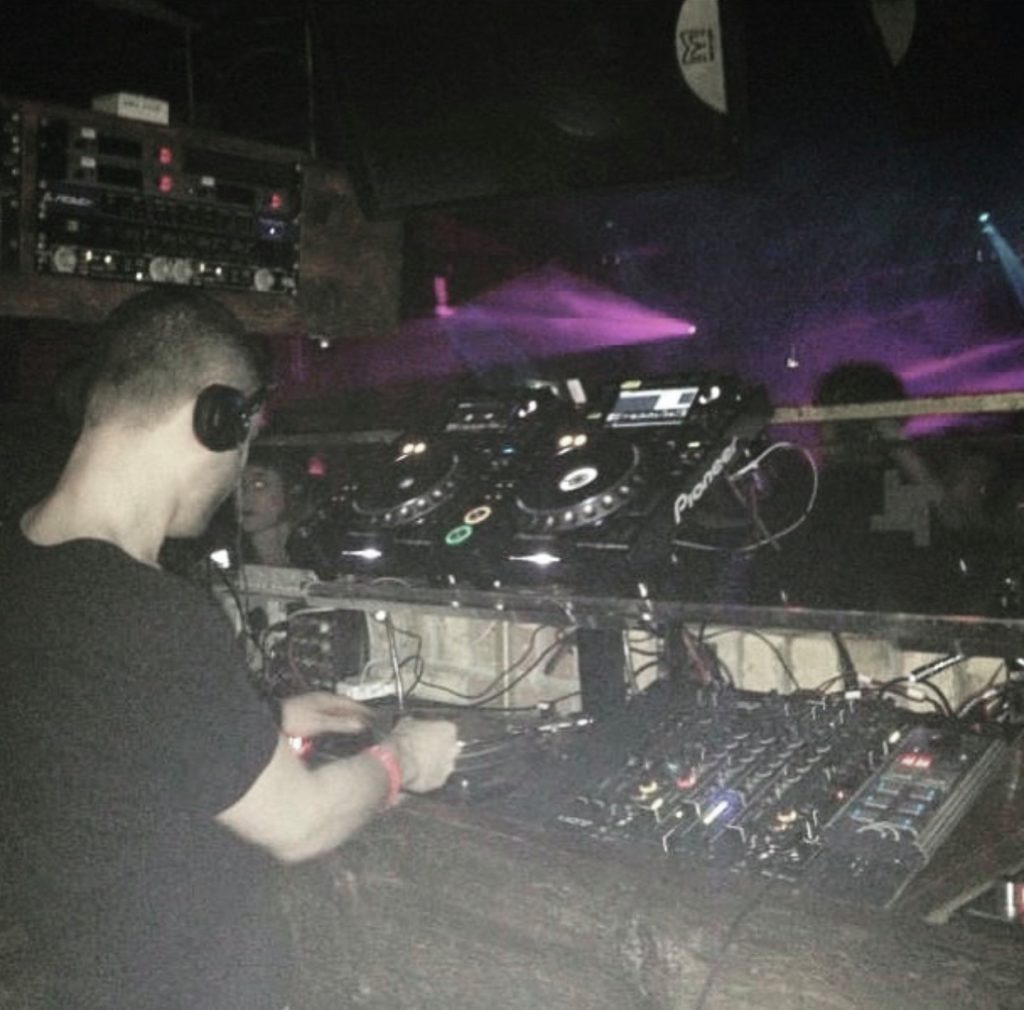
You decided to move to London in 2004, how did that come about?
“In the late 90’s there were only few online record stores and the selection was very limited. I really liked to read the words on the records I bought, I could do it for hours. Doing that, I started to connect the dots and extend my knowledge about the scene, I saw where each label was located, what kind of clubs the artists were related to and so on. Basically it was my Discogs of today!
I was then very attracted and eager to do some record shopping in London, I wanted to hunt for records that I couldn’t get in Tel Aviv. Again, it was not so accessible like today and you really had to travel and do some serious digging to get more sophisticated and rare vinyl. You couldn’t get digital files and all that. My first trip to London was around 1999, I fell in love with the city and the club scene, and kept on going back until I finally moved there in 2004.”
What was your primary vision for starting Sushitech and what was the biggest challenge you faced?
“Spending countless of hours exploring and producing music, I felt the desire to share it with others. The biggest advantage of the internet back then was for people to connect groups who share their real values and interests, before that you were pretty much tied to the same location. Keeping that in mind, I started to be in touch with other producers from around the globe. Underground forums, online chats… it all helped to connect people with more niche interests such as mine.
I got in good touch with many great artists, Eddie Richards, Grant Dell, Jay Tripwire, Exos, Pheek, Magda… I was keen on the idea of connecting people together. I then tried to help my producer friends get in touch with other label owners that I knew. Most of the time, those labels didn’t want to take the risk and put out music that I personally thought was decent. I decided to launch my own record label and put out those tracks, and my own productions. All the first releases on the label were made by my “online mates”, who with most I’m still in touch.
The idea of the label was always to bring people together, true artists from around the globe that share similar vision and passion. The sound was always techy, driving and deep, with a strong relation to dub, the Molair track on our second release is an excellent example.”
15 years on: how do you feel it has evolved and what’s the biggest challenge you face now?
“Thinking about that in retrospective, I was fortunate enough to build our family of artists, release and produce great records. I guess that listeners, at some deep level, will always appreciate honest production and I’m very grateful for that. With each and every release we try to show something new and push boundaries, there is always a hint from the past but the vision and structure of the releases is very forward thinking.
The biggest challenge though, is to harmonise the relation between our label artists and listeners. Not just to connect them but to harmonise, in order to keep homogenous feel and strong relation. I want each of the label artists to have enough space to be a solid bedrock of the Sushitech family.”
Hindsight is a wonderful thing: Is there much you would choose to have done differently looking back?
“Well, I wouldn’t want to change a thing really. Just like the title on the last chapter of my new compilation – Fatum. I believe in destiny. All the things we do are simply part of the journey.”
You live in Berlin these days, in what way has this changed your outlook?
“I have lived in Berlin for the last 14 years, that’s very big part of my life so it definitely shaped my personality and of course the way I listen to music. Music is always reflected by your surroundings. When I moved here the sound of the city was very raw and hypnotic.
When I listen to music, I see a very horizontal image and Berlin gave me a better perspective on that. The nights are very long, there is no peak time or big explosion, it all remains flat and steady, the best nights progress on a very intricate level. This gave me a different take on music when I first experienced it.”
You set up Wood White Studios in 2013, tell us more about the venture…
“The art of sound engineering is something that has grabbed my attention for many years. Before I relocated to London, I used to work for a sound company that provided PAs. It taught me a lot about live sound. Speakers, amps, cross overs, compressors, acoustics… etc, etc, etc.
Then, when I started to release my own productions it was interesting to play the music on different systems and see how people would react. The room and system have direct relation to the records I take with me, I find it extremely important. If I don’t know the room, I’ll do my best to come first and learn the sound. It’s also interesting to see how through mixing you can manipulate sound. All those kind of things really grabbed my attention.
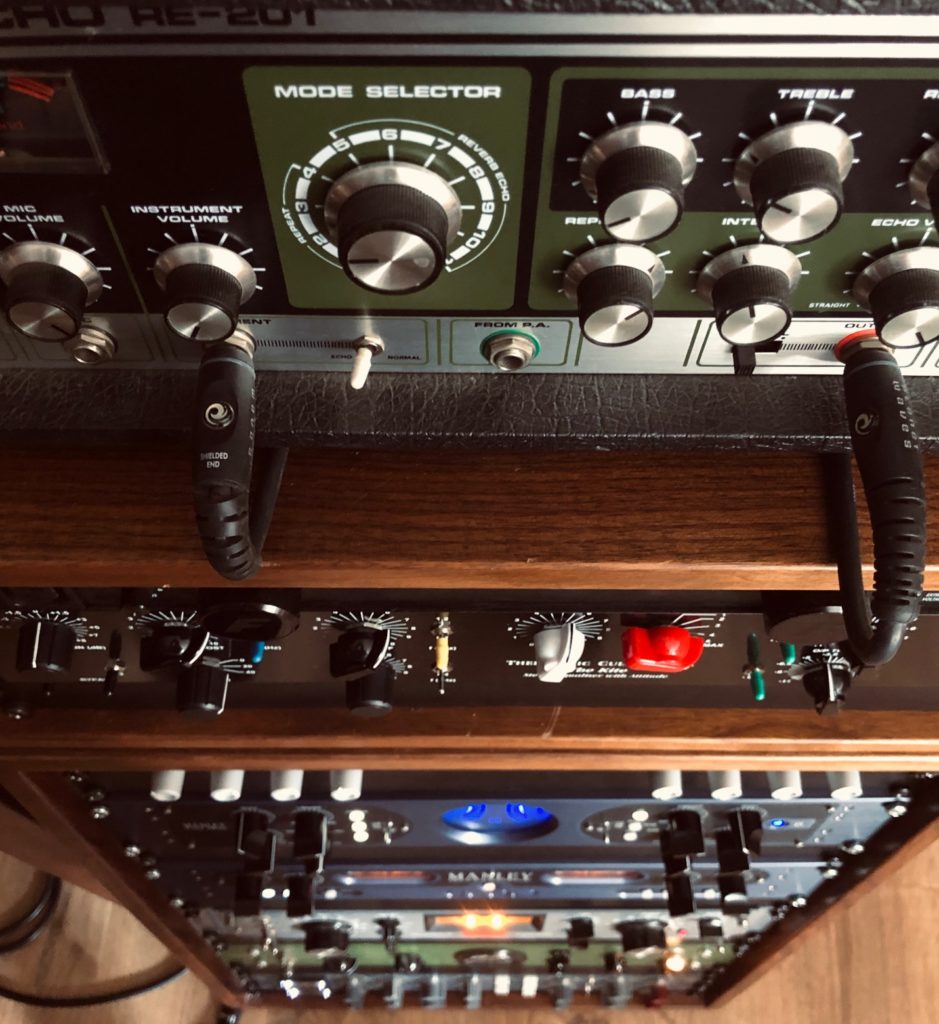
Working with live sound engineers as a teenager, producing music, experimenting with sound and going to countless mastering sessions really brought me into mixing. I’m very much of an autodidact but I thought that going to university and investing time at SAE will teach me more. I went there couple of times and deeply checked the study program but I discovered that I didn’t want to repeat on things I already knew and work with on daily basis. I then decided to get my first proper mixing desk, that was my first big studio investment 12 years ago.
Since then I collected some outboard gear and upgraded my console to an extended Neve Shelford 5088. It was an adventure getting this thing and in fact it was one of the very first Shelford consoles in Europe. I then started to develop my hybrid Neve / Thermionic Culture console which is half transformers and half tube based. Wood White Studios is the centre of everything I do, I spend every day (and night) in the studio, producing, mixing, pre-mastering… all the end results you hear on Sushitech or anything I do basically start here. It also gives me the opportunity to help other label artists that write quality music but don’t have the facilities and deeper knowledge about sound.”
As you’re celebrating 15 years of running multiple labels… what do you see as your biggest achievements if that’s the right way to put it?
“15 years indeed but I’m relatively young and see a long way ahead of me so it’s a little difficult to answer. However, if I had to answer then it would probably be the connection and harmony I’ve tailored between the artists to build the Sushitech family.
When I see other labels having our artists on their remix projects or promoters invite our regulars on the same line up, it’s touching. It’s something I can really appreciate because in fact there is no historic, geographic or demographic relation between the artists. It’s the label that put them together and built something unique out of it. That would probably be the biggest achievement of the label – the strong and loving friendship.
It takes me long time to produce a proper record and each release has unique story behind it, I could probably write a book about that. To reflect my previous answer though, I guess it’s the strong connection between label artists – our label compilations and reconstructed projects really reflects this. I’ve also written a collection of texts to be released with the Fleure compilation that go deep into the tracks on the record, which you’ll be able to read soon.
What new music are you listening to these days when you’re having a break?
“Right now while doing the interview I’m listening to the new amazing album from Kruder and Dorfmeister. K&D, Tosca and all the G-Stone family are very big inspiration to me, I always loved their music for more quiet moments. I really like any Nigel Godrich production as well, he’s inspiring on so many levels. The new Ultraista album is something I’m playing a lot in my car too.”
As techno has always been music forward thinking and focuses on a vision of the future – how do you feel about the focus on the past that has been around for quite some time now?
“Well, it says that the best way to predict the future is to study the past. I believe it’s the same with music, no one is reinventing the wheel and the essence is always there, it just keeps coming back in different forms and shapes. I really like the idea of blending the classic with some new and unknown, that’s basically the concept of the label and what I’m doing. You’ll always find that kind of mixture in any of my DJ sets and our releases. That concept is at the core of what I’m doing and it helps me to lead things forward. Myself and many other studio guys are always seeking for new gear, sound and technics, we always progress but first you have to understand deeply, where it all came from.
Techno has always been about innovation and we are looking to take this spirit to our followers and start sharing thoughts with the aspiring artists through a nice forward thinking platform. This is going to be a big focus for 2021, we’re very excited about it. I’m really excited by the opportunities it gives to connect directly with our amazing followers away from social media, which is getting ever more noisy and it’s become clear that the main platform themselves, not the people actually creating content!”
Thinking about new talent: who has really excited you this year?
“There is so much great talent out there! I really like the sound of MSL, it’s very honest, inspiring and forward thinking, I included their track on my new compilation for that reason. I also like to listen to Bella Boo when it comes to a more mellow, housey vibe.”
Last but not least, what have you got planned for the labels next?
“Well, right after my compilation, we’ll release the debut LP of Steve O’Sullivan. It’s a collaboration album, an extended project from Steve and other talented friend: Steve Rachmad, Vince Watson, Lawrence, Ricardo Villalobos and Thomas Melchior to name a few. On Pariter, we’re having a remixes project for Derek Carr’s “Pursuit” that was released earlier this year. Exciting projects that we can’t wait to put out!”

